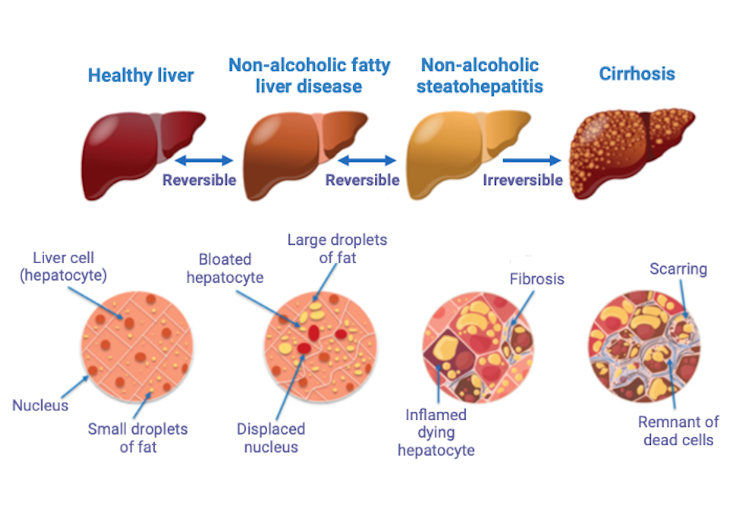Fatty liver disease, also known as hepatic steatosis, is a condition characterized by the accumulation of excess fat in the liver. While there is no specific cure for fatty liver disease, the good news is that it can often be reversed or managed through lifestyle changes. Here are some steps you can take to improve your condition:
- Maintain a healthy weight: If you are overweight or obese, losing weight is crucial in reducing fat accumulation in the liver. Aim for a gradual weight loss of 1-2 pounds per week through a combination of a balanced diet and regular exercise.
- Follow a healthy diet: Consume a diet that is low in saturated fats, trans fats, and cholesterol. Focus on whole foods such as fruits, vegetables, whole grains, lean proteins, and healthy fats like those found in avocados, nuts, and olive oil. Reduce your intake of sugary foods and beverages, as they contribute to liver fat buildup.
- Exercise regularly: Engage in regular physical activity to help reduce liver fat and improve overall health. Aim for at least 150 minutes of moderate-intensity aerobic exercise or 75 minutes of vigorous exercise each week. Additionally, incorporate strength training exercises to build muscle mass.
- Limit alcohol consumption: Alcohol is a major contributor to liver damage, including fatty liver disease. It is important to limit or completely avoid alcohol consumption to allow the liver to heal.
- Manage medical conditions: If you have underlying medical conditions such as diabetes, high blood pressure, or high cholesterol, it is important to manage them effectively. Properly control these conditions through medication, lifestyle modifications, and regular check-ups to reduce the risk of fatty liver disease progression.
- Avoid unnecessary medications: Certain medications, including some over-the-counter drugs and supplements, can contribute to liver damage. Consult with your healthcare provider or pharmacist about any medications you are taking to ensure they are safe for your liver.
- Stay hydrated: Drink plenty of water throughout the day to support overall liver function and help flush out toxins from your body.
- Quit smoking: Smoking can worsen liver damage and hinder the healing process. If you smoke, seek assistance to quit smoking and improve your liver health.
- Get regular check-ups: Regular visits to your healthcare provider are important to monitor your liver health and address any concerns or complications promptly.

It’s important to note that these steps are general recommendations and may not be suitable for everyone. It’s always advisable to consult with a healthcare professional for personalized advice and guidance tailored to your specific situation.